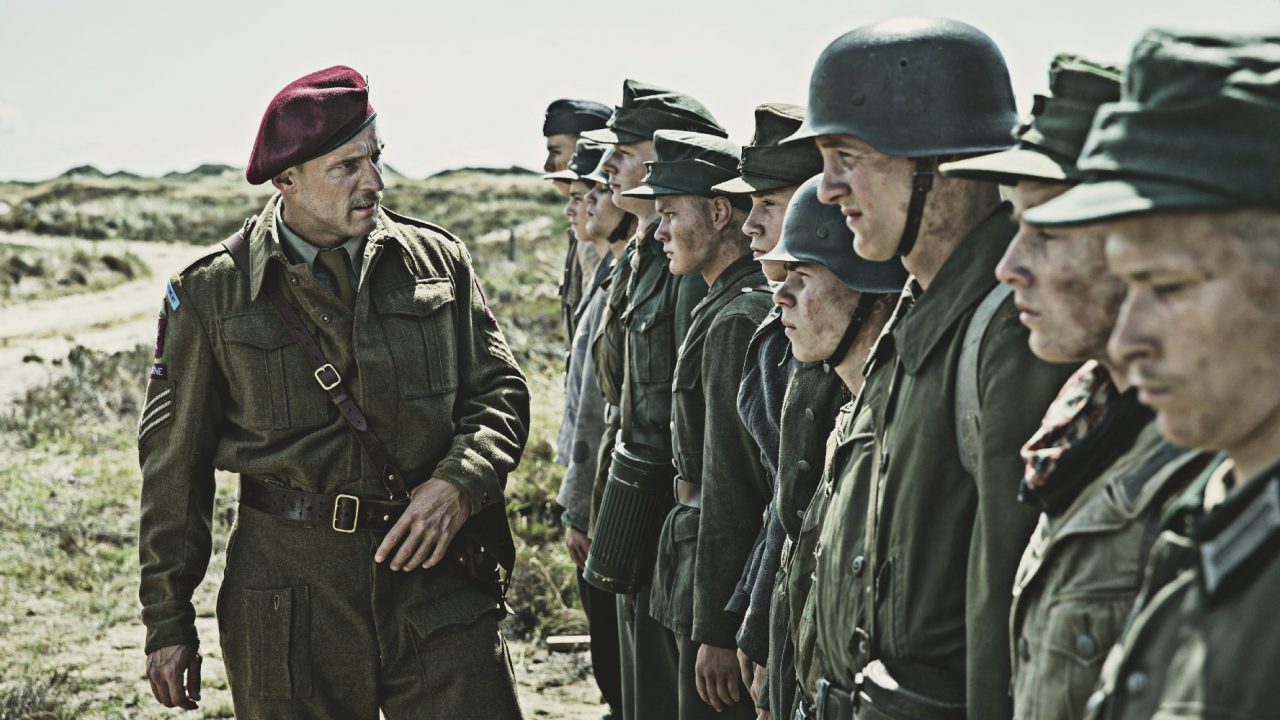Despite a punny title that smacks of cheap humor, “Land of Mine” emerges as a quiet heartbreaker, a fact-based drama about war and youth and shared humanity.
Writer/director Martin Zandvliet based his screenplay on a real bit of Danish history: At the end of World War II Denmark’s beaches were peppered with more than 2 million landmines, placed by the occupying Nazis in anticipation of an invasion that never came (the Allies hit Normandy instead).
With the end of hostilities, the Danes faced a monumental and tremendously dangerous cleanup effort. Their solution was to delay the repatriation of German POWs, putting the prisoners to work defusing the mines. If some of them got blown sky-high, so what? The Nazis put them there in the first place.
Zandvliet’s film concentrates on one of these beach-clearing crews. Fourteen Germans — they’re mere teens — are assigned to work under the direction of Sergeant Rasmussen (Roland Moller), a spit-and-polish Danish paratrooper whose hatred of the Krauts still burns fiercely. In the film’s first scene, Rasmussen physically attacks Germans POWs wearily marching down a muddy road.
Once they’ve undergone rudimentary training in bomb disposal, these youngsters face a beach packed with several thousand land mines. They will spend their days probing for buried explosives and their nights locked in a shack.
It soon becomes apparent that the Danish high command cares not one bit about the fate of these kids. For days they are denied food; finally grumpy Sergeant Rasmussen appropriates bread and potatoes from a military supply depot. Men too weak to walk to the beach aren’t going to defuse many bombs.
At the center of “Land of Mine” is Rasmussen’s gradual transformation from hateful taskmaster to, well, den mother.
These aren’t hardened Nazis. It’s pretty clear they were recruited during the last months of the war to serve as cannon fodder for decimated German regiments. Not even a hard-ass like Rasmussen can keep his rage stoked in the face of these mama’s boys.
Although the roles of the young Germans are all well played, there’s not enough time to develop their personalities beyond a fairly rudimentary level.
Most of the heavy lifting falls to Moller, a terrific performer who, amazingly enough, spent his youth as a career criminal and only turned to acting after four years in prison. What he provides here is a quietly breathtaking transformation from hate to humanity.









